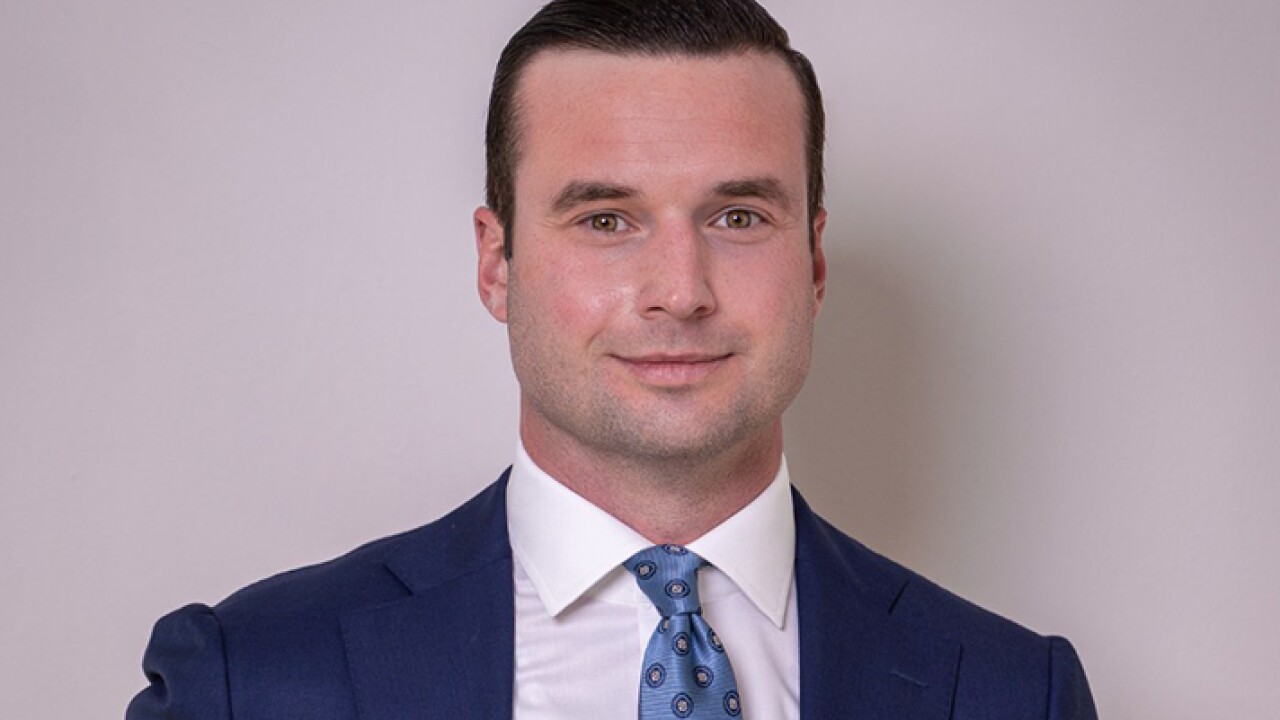The National Association of Bond Lawyers annual NABL U Workshop kicks off this week as a hybrid event broadcasting from Chicago with Joseph "Jodie" Smith set to assume leadership of the organization and aiming to double down on NABL's core mission.
Smith is taking over from Ann Fillingham, director, regulated industries, Dykema. He is a shareholder at Maynard Cooper & Gale based in Birmingham, Alabama. Over the past twenty years his primary focus has been on tax-advantaged finance and securities transactions. He will serve for one year.
Smith's expertise at his day job extends over government, non-profit, and for-profit organizations on taxable and tax-exempt financings. He serves as counsel for bond disclosures, issuance, and underwriting. His tenure with NABL begins with the muni world hurtling toward an unknown future defined by the upcoming mid-term elections and buffeted by several thorny issues related to public finance.

One such issue is regulation of environmental, social, and governance investing, or ESG. Smith sees the ongoing ESG debates delineated into distinct issues.
"I can distill our core message into three parts," he said. "The corporate market and municipal markets are wholly different. The existing and well-established understanding of materiality already covers disclosure of relevant ESG risk factors, and labeling is a deal-specific decision that, for the time being, should be left between the issuer and the buy side."
ESG is proving to be an acrimonious political dividing line in public finance. Smith is hoping to guide his organization above the fray.
"I can tell you that NABL will remain committed to our bread-and-butter issues and mission," he said. "In my opinion, the value of the municipal market to state and local governments, the communities we call home, speaks for itself. Most federal decision-makers seem to understand the value of our municipal market. We will continue to beat the drum with our peer associations in the next Congress to make sure that remains the case and that our market does not become a political bargaining chip."
Smith was encouraged to join NABL early in his career and believes he is a better bond lawyer thanks to the organization. He's planning on working with the group's Governmental Affairs Committee and lawmakers in the next Congress on issues that include protecting the current securities law and tax treatment of munis. The organization also wants to
modernize bank-qualified bond rules, expand options for private activity bonds, while restoring and advancing refundings at some level. Creating a permanent direct-pay bond program for issuers to expand financing options is another point of emphasis.
Smith also intends to work on implementing regulations under recent federal tax legislation and continue addressing the transition to a post-LIBOR world. Updating the 2007 NABL/GFOA post-issuance checklist is a priority.
Smith is hopeful the announced Internal Revenue Service funding boost will continue to improve relations between the Treasury Department and issuers.
"It is certainly my hope that the additional money can be used to improve IRS staffing, operations, and processes to ultimately make things easier for participants in our tax-exempt markets," he said.
Outgoing president Fillingham feels the organization is in excellent hands as she steps down.
"I first got to really know Jodie the year I ran the Workshop and he chaired the Hot Topics in Securities Law panels," she said. "Since then, our many years of joint service on the NABL Board have underscored my initial impression. Jodie is smart, thoughtful, and committed to all that NABL does and stands for. He will be a terrific president."
Smith has bar admissions in Alabama and Georgia. He received his law degree from the University of North Carolina School of Law. He also studied at the University of Glasgow, Scotland and received his undergraduate degree at Birmingham Southern College.





